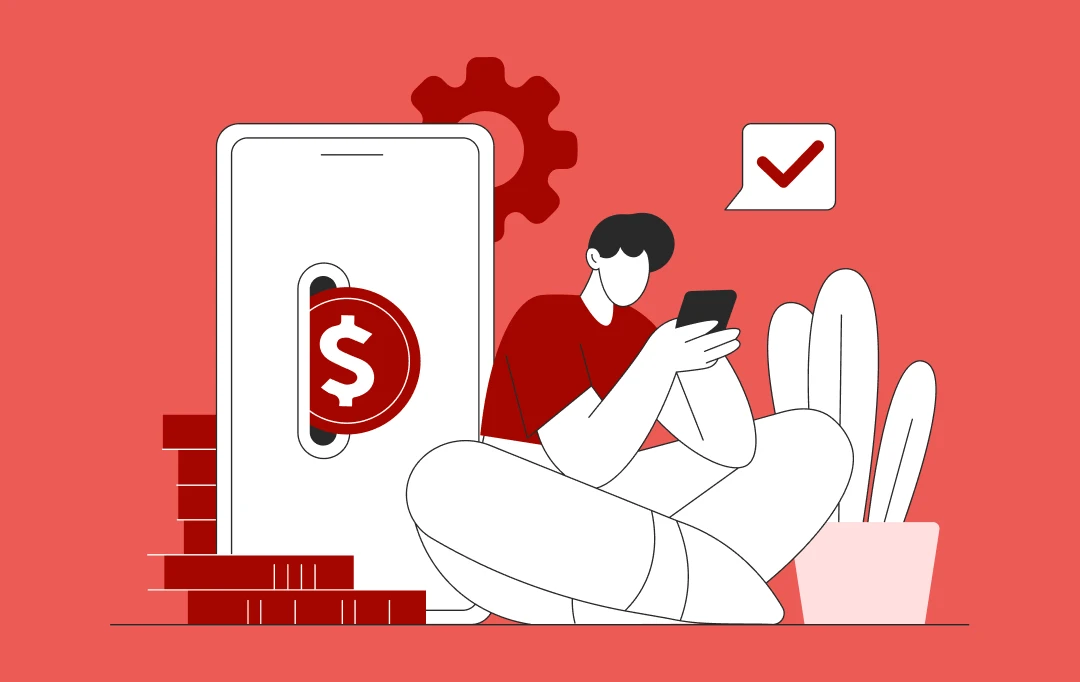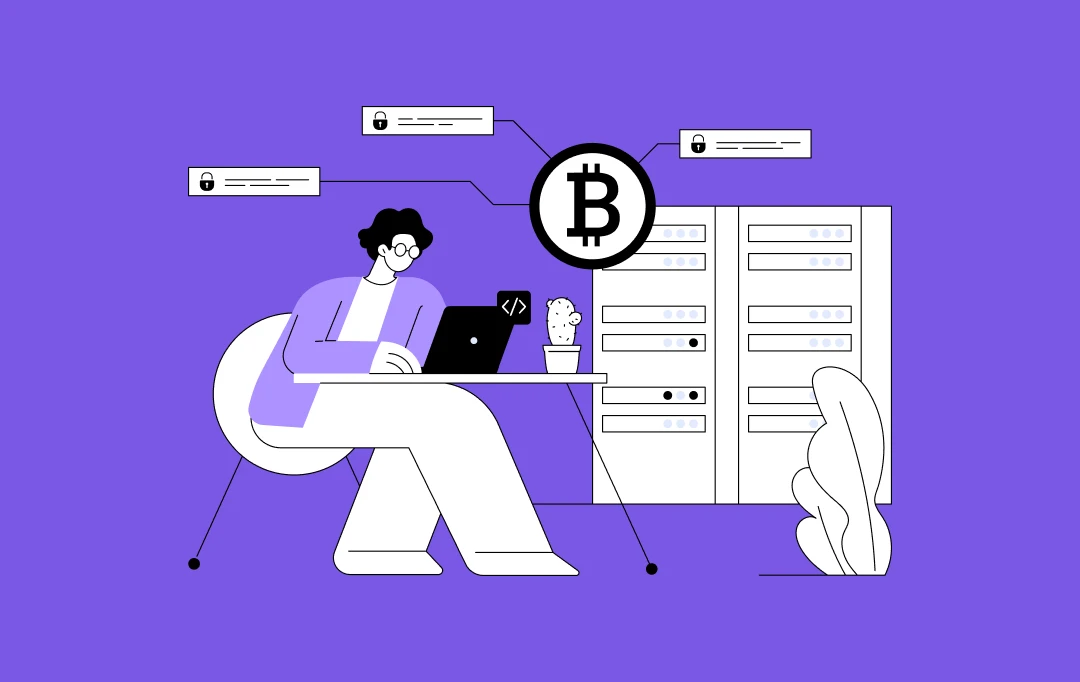- Benefits of Blockchain in fighting COVID-19?
- Trustable Data Management
- Decentral Surveillance Systems
- Empowered Supply Chain Management
- Blockchain Solutions to fight COVID-19 Pandemic
- Blockchain for Contact Tracing
- Use Case #1
- Use Case #2
- Use Case #3
- Blockchain for Supply Chain Management
- Use Case #4
- Use Case #5
- Blockchain for Claims Processing
- Use Case #6
- Blockchain for Identity Management
- Use Case #7
- Use Case #8
- Blockchain for Cross-Border Data Exchange
- Use Case #9
- Use Case #10
- Blockchain for Decentralized Computing
- Use Case #11
- Blockchain for Data Privacy & Security
- Use Case #12
- What Does the Future of Blockchain Look Like When Fighting Coronavirus?
- FAQs
- Q. Which industries are adopting blockchain technology during coronavirus?
- Q. How Blockchain is Being Used in the Fight Against COVID-19
- Q. Can Blockchain prevent future pandemics?
The COVID-19 Pandemic has fractured the global financial system exposing age-old cracks within our supply chain systems. Its lethal shut-down rate of world economies has forced financial analysts against the wall to rethink the connecting nodes of business value chains.
A front-runner in this race to remedy the situation is Blockchain Technology. Its hallmark characteristics of provenance, immutability, security and data storage are everything our supply chains lacked, and everything that is the current call of duty.
Healthcare systems are overwhelmed, with entrepreneurs and scientists scurrying to the aid of all. Notwithstanding leading global corporations that have begun to implement Blockchain-based solutions to fight the menace of COVID-19 (more on that in a minute), the promise of a mainstream adoption might already have materialized.
Blockchain was recognized by the U.S. President Donald Trump as a critical infrastructure service under the COVID 19 guidelines. Desperate times, call for desperate measures. Only this time the measures will be eclipsed by a silver lining of Blockchain Technology.

Benefits of Blockchain in fighting COVID-19?
Being the digital ledger that blockchain is, it has distinguished features with each of them sufficient, in and of themselves, to power an enterprise blockchain adoption, both in the current healthcare climate as well as in the future. The Coronavirus impact on Blockchain, most of which has been for the good, has made think tanks reconsider a strategy where an increasing number of companies using Blockchain can contribute to the collective betterment of society. A betterment in which sound Blockchain development company like us are supporting the,
Trustable Data Management
One of the reasons the COVID-19 pandemic has hit us like a lightning is due to outdated data management systems. The heretofore medical infrastructure used for archiving records is outdated if not archaic. It lacks interoperability and prohibits knowledge sharing on a real-time, cross-border scale. With unverified sources of information, misinformation campaigns and altering medical records is highly plausible. We can take key pointers from an almost war-cry like roadmap from the U.S. Department of Health and Human Services’ Office.
It outlined in its agenda the need for a nationwide electronic healthcare infrastructure with provisions for verifying user identity and security layers. Turns out that the Coronavirus impact on blockchain value addition is right on the money. As we shall see in the examples listed below, blockchain can be (and is being) used to manage/organize thousands of records, with automated data verification and provenance. Blockchain architecture could be tweaked to make it private, limited to frontline workers, or public, available for anyone to study.
Decentral Surveillance Systems
Blockchain breaks the barriers of informational silos, allowing participating nodes to input ethical data without piracy in real-time. We can begin by housing big data on a digital ledger for selected but trustworthy members of a global consortium with indubitable provisions for sharing data. Interoperable analytical tools can then be used to download information and run visualisations to future-see infection outbreaks. Such a system would outlast the current COVID-19 timeline, wherein we could see blockchain preventing pandemics of different scale and size.
Empowered Supply Chain Management
There is a strong case for blockchain to be the antidote the frailing supply chain management needed. It can eliminate fraud and unwanted paperwork, track shipments to their source of origin, effectuate real-time fund transfer and (most important) establish trust between parties. Rules of participation (think smart contracts) could be so stringent that vendors with frequent order complaints be blacklisted. With the blockchain, advance disaster management can ensure that essential resources such as personal protective gear, masks and medicines are stockpiled and diverted to the most vulnerable sections of the society.
Blockchain Solutions to fight COVID-19 Pandemic
We begin at the epicentral battleground for COVID-19, China. Social distancing and national lockdowns have jarred the progress of research work that feeds on data exchange. With rising concerns around data privacy and usage, the Chinese government has expanded the role of Blockchain in COVID-19 mitigation and control. A few such blockchain use cases are pointed below.

Blockchain for Contact Tracing
Use Case #1
With the focus on contact tracing and protecting personal data, Vastchain Technology launched a WeChat (a messenger App) based program called the Access Pass.
- Local residents use QR codes on the app to commute to and fro from restricted communities.
- The collected information is encrypted and stored on blockchain-based servers. Over the last month and a half, this QR code authentication has emerged as one of the optimum blockchain solutions to fight the virus.
- If infected, the codes can be used by authorities to map a history of travel for the patient and predict the likelihood of community transmission in the future.
- The data, as per the company, will be deleted in the Post-Pandemic era.
Use Case #2
With the majority of countries imposing stringent lockdowns and (almost) mandatory location-tracking smartphone apps, Honduras is no exception. But a reason the grass may actually be greener on Honduras’ side is because the country is implementing blockchain-based contact tracing. Is there any other way to keep it other than calling a blockchain for government respite? Probably not!
- Honduran-based blockchain startup Emerge has augmented resources to fight COVID-19. It has done so, collaborating with the Emergency Response Unit of the Honduran Government, Inter-American Development Bank and Penta Network to launch the Civitas app.
- The app will assign a blockchain-identifier corresponding to people’s government ID.
- The service can be availed for telemedicine and permits to run errands.
Use Case #3
In South Africa, a team of academics and software developers have engineered a blockchain-powered solution for subscribers to validate their COVID-19 status.
- With shared similarities between the times and its mission, the app has been named Cov-ID.
- Alongside tracing the contact history of asymptomatic or infected patients, the app has a reward system to appreciate law-abiding citizens, restricting themselves to home.
- Cov-ID runs on a Self Sovereign Identity (SSI) Network i.e. a permissioned blockchain called Sovrin.
- Such key aspects of blockchain technology allow users the control to stay anonymous at the same time sharing life-saving inputs about the spread of the infection.
Blockchain for Supply Chain Management

Use Case #4
Ant Financial owned online payment service Alipay launched a blockchain-based platform to ease participation towards philanthropic endeavors.
- Anyone interested in contributing towards medical supplies can transfer their donations on the app.
- The app screens, registers and then traces the demand for medical supplies in red-flagged zones, in turn, making the distribution of donations easier.
- The parent company was braced to soak up the economic shock handed down by COVID-19 with its blockchain-based supply chain finance platform Ant Duo Chain.
- The service is targeted towards Small & Medium Enterprises with large corporate clients. Due to traditional norms, suppliers have to wait weeks after delivering a consignment, waiting in the wings for approvals.
- The Ant Duo Chain cuts down significantly on this timeframe by giving instant credit to suppliers, in process, promoting liquidity. This invoice is sold to the banks that collect the payments from the corporate clients. Together with such power-packed initiatives, Ant Financial is one of the largest companies using blockchain solutions to fight COVID 19.
Use Case #5
Engineered by the software development firm Acoer, HashLog is a blockchain-based visualization tool.
- HashLog interacts real-time with the public distributed ledger technology platform Hedera to forecast new hotspots in the fight against COVID-19.
- It feeds on public data released by the World Health Organization and the US Centre for Disease Control (USCDC) to visualize danger-zones.
- One of the most revolutionary features of the blockchain is that it erodes data duplication.
- Running on Hedera’s blockchain, once visualized, analysts can be sure to trust the data with little-to-no discrepancy.
- It helps decision-makers to optimize the reserves for Personal Protective Equipment (PPE) and other medical aid.
Blockchain for Claims Processing

Use Case #6
Xiang Hu Bao is a blockchain-powered Chinese claim sharing platform and has more than 104 million users.
- In an attempt to ease customer stress, they’ve added the feature to process online claims for the COVID-19 virus.
- Its trickle-down effect would reduce volumes of paperwork along with the protocol for document submission at the clinic, at the same time respecting social distancing norms. It is a pathway example of how blockchain technology is being used in fight against Coronavirus!
Blockchain for Identity Management

Use Case #7
In China’s Shaanxi province, a blockchain-based system is facilitating online health consultations securely encrypting public health records. The app was a key part of ensuring a smooth post-COVID 19 transition for people who returned to work after easing of restrictions.
Use Case #8
Scientific consensus around social distancing opines that it has to be part of the new normal in the post-COVID-19 world. Digital identification would emerge as one of the healthiest Blockchain use cases if you wind back the clock to the nascent period in the development of blockchain technologies. That is exactly what Spherity, a German Startup is packaging its latest offering E-Rezept around.
- E-Rezept is Spherity’s attempt to design blockchain solutions and fight the spread of the virus.
- It is a decentralized identity prototype based on the principles of self-sovereign identity (SSI).
- Prescriptions expire, and once they do the patient must renew the same by reporting in person to the doctor with an Id proof.
- With E-Rezept, such Know-Your-Customer (KYC) data would be readily accessible with the help of a digital fingerprint associated with an e-wallet.
- Think, accessing your bitcoins with a private key. Upon verifying the credentials with the records on the blockchain, doctors can issue electronic prescriptions.

Blockchain for Cross-Border Data Exchange
Use Case #9
Mipasa is a global data-hub project by leading technological professionals, healthcare experts and privacy regulation advocates that is essentially a blockchain platform for information sharing.
- Built with the coalition of IBM, World Health organization, Oracle, Microsoft, and governmental institutions (to name some), Mipasa is a predictive analytics tool that helps identify emerging hotspots and potential COVID-19, asymptomatic carriers.
- Its user app broadcasts locale-patterns with concerned agencies such as hospitals and regional governments for advance preparedness.
- Since personal information is safeguarded with digital cryptography and encrypted layers, there is no need for government oversight, turning the operation into a truly decentralized network.
- It is safe to say, Mipasa will act as a catalyst for the use of blockchain in healthcare.
Use Case #10
Work is underway at the Villanova University Department of Electrical and Computer Engineering, in Pennsylvania, to create a software for tracking infectious disease outbreaks such as COVID-19.
- They’re relying on the triad of Blockchain, Internet-of-Things and Artificial Intelligence.
- Rights to a private blockchain network will be shared between healthcare centres around the world to encourage medical professionals to share COVID-19 test results.
- At the same time, Artificial intelligence and IoT will map high-density areas for public gatherings and transmit alerts over the blockchain drawing attention to a future spike in cases.
- Stocking supplies as part of contingency planning could result in fewer casualties.

Blockchain for Decentralized Computing
Use Case #11
Folding@home (FAH or F@h) project is a dedicated scientific mission launched in the year 2000 to invent cures for diseases.
- Project coordinators run simulations of protein behavior using the computing power of machines solicited by volunteers, hence distributed computing.
- As part of the Coronavirus impact on blockchain amidst the worsening circumstances, the largest Ethereum mining group in the United States, CoreWeave volunteered to contribute the processing power of more than 6000 computers towards this project.
- More the power, greater the number of virtual tests that could be computed, inching humanity closer to a possible cure of this scourge.
Blockchain for Data Privacy & Security
Use Case #12
Genobank.io, a startup that allows users to store DNA data anonymously, is joining forces with Telos blockchain to combat coronavirus by making users avail testing kits, from legitimate medical centres, anonymously.
- Agerona will be an open-source app, using which any app user can source testing kits from within their country.
- Maintaining anonymity, test samples can be sent to centres for validation using a barcode that acts as a digital identifier on the Telos blockchain.
- The invoice details will stay on the Telos network to uphold transparency. Eventually, the results will make it to the blockchain but without any connecting trail to anyone.
- Researchers can use the cumulative results to better paint an opinion based on empirical insights.
What Does the Future of Blockchain Look Like When Fighting Coronavirus?
In view of the above examples, the role of blockchain in COVID-19 control cannot be downplayed. It arises from this discussion that the future holds immense promise for this distributed ledger technology. The impact of coronavirus on cryptocurrency, one of the most popular blockchain use cases has been adverse. That doesn’t take away from the fact the proof of concept for utilitarian blockchains and their evolution. Since the early 2010s, we have arrived at a stage where blockchain-based security tokenization is being touted as the next big thing in capital markets. But that discussion is for another day. The crux of the argument being, Blockchains will be a rising tech trend in the 2020s, just as Gartner puts it.
Regulatory institutions are infamous for holding back on critical technology introductions in the name of perfection and inclusion for all. In so far as that goes, perfection did prove as an obstacle to blockchain adoption in the mainstream limelight. But those bonds are loose and such desperate times like the ones we are fighting now, warrant desperate measures of blockchain adoption. Of course, there will always be room for improvement, but it doesn’t take away from the fact that there is a huge opportunity for blockchain to enrich its global outreach.
You should expect to see a lot more Blockchain development services in the days to come that would prefer a multi-industry portfolio over the traditional open banking solutions that they had been developing.
Data standardization, expedited drug research and predicting future epidemics sound a good reason to believe in the upcoming mainstay of Blockchain technology.
FAQs
Q. Which industries are adopting blockchain technology during coronavirus?
Trends suggest that global Healthcare reliance on Blockchain is increasing by the day. The Fintech industry is next in line followed by Supply Chain & Logistics Management.
Q. How Blockchain is Being Used in the Fight Against COVID-19
Applications run on Blockchain can be used for real-time data exchange, record updating, archiving and trend forecasting to help epidemiologists track the spread of COVID-19 virus.
Q. Can Blockchain prevent future pandemics?
It is very subjective but it is safe to say that mankind could be better prepared with disaster management plans provided we built an ecosystem for trustable data sharing with Blockchains.


- In just 2 mins you will get a response
- Your idea is 100% protected by our Non Disclosure Agreement.

How Much Does It Cost to Develop a Crypto Wallet App Like Metamask?
Key takeaways: Developing a MetaMask-like crypto wallet can cost anywhere from $30,000 to $250,000+, depending on the complexity of features and integration. The cost breakdown includes development, security, integration with blockchain networks, and ongoing maintenance. A customized wallet opens up new revenue opportunities, brand differentiation, and long-term business growth. Since its launch in 2016, MetaMask…

How Much Does it Cost to Build a Blockchain App in the UAE?
Key takeaways: The UAE blockchain market is rapidly expanding, with the BFSI sector capturing over 50% of the market share. As blockchain adoption accelerates, development costs in the UAE range from AED 55,000 to AED 1.85 million, depending on app complexity and features. Factors such as platform selection, security measures, and third-party integrations directly impact…

How Blockchain Integration Is Optimizing Business Processes in Dubai
Key takeaways: Blockchain is a strategic enabler in Dubai, transforming traditional business workflows by enhancing efficiency, transparency, and automation beyond cryptocurrency applications. Dubai’s supportive regulatory environment and government initiatives (e.g., VARA, Dubai Blockchain Strategy) create a clear, innovation-friendly framework, accelerating blockchain adoption. Integration with legacy systems through modular blockchain solutions enables enterprises to modernize operations…
















